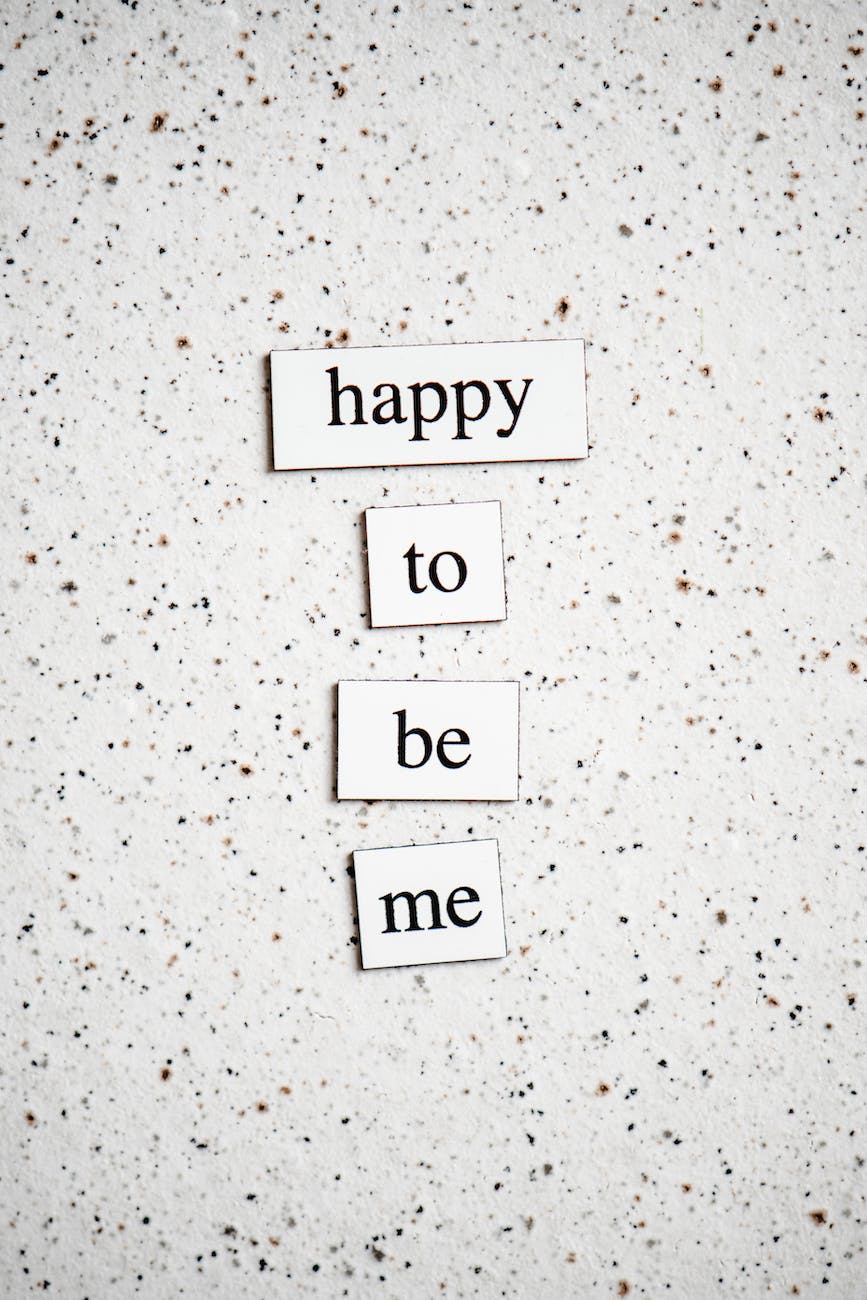3 healthy habits for your mental health that only take 5 minutes
The uncomfortable truth is that getting out of a bad mental place requires work. If we don’t actively work against the bad thoughts and feelings it’s going to be hard to overcome them. The good news is that there are several healthy habits for mental health that you can incorporate into your daily life that
- don’t take more than 5 minutes each
- you can comfortably perform from home
- will over time significantly boost your state of being

Gratitude
When our mental health is bad, our brain is highly focused on all the things we wish were different and all the things that are going wrong in our lives. Therefore, we need to remind ourselves of the positives in our lives. A gratitude practice is an excellent way to reframe our thoughts and thereby our perceptions. It also has the nice side effect of you having to reflect back on your day at the end of it which helps us to live more consciously in general. It’s therefore an excellent strategy for better mental health and should become a part of your routine.
Gratitude practice is an incredibly powerful tool to work against our brain’s natural mechanism to focus on the negative and to boost our mental health. If we do this consistently, we are training our brains to focus on the positives instead. Think of it like training a muscle. What is really happening neurologically is that the pathways for positive thinking in our brains will get strengthened. Therefore they will become more easily accessible, making positive thoughts a more automatic response. You will find that over time, it will become easier to come up with things in your life that you are grateful for – so stick with it!
How-to
At the end of each day, think of three (or more) things that you are grateful for. You can alternatively also write down three things that made you happy that day, three things that inspired you, three positive things that happened,… If you need some inspiration, please see below.

Gratitude – examples
- I am grateful for my physical health
- I am grateful to have a roof over my head
- I am grateful for the delicious meal I had today
- I am grateful for friend X / my family / my partner
- I am grateful that the sun is shining today
Positive statements – examples
- Today a stranger on the street smiled at me
- Today I was able to help my friend with X
- Today X helped me with X
- Today someone gave me a compliment for X
- Today I managed to get X done
- Today I treated myself to X
- Today I learned something new
- Today I had a friendly customer service agent on the phone

Affirmations
Affirmations are another incredibly powerful tool to retrain our brain to focus on the positives and to boost our mental health. The great thing about how our brains work is that over time they start believing every piece of information that we feed them regularly. Unfortunately, we may hold many constructive beliefs about ourselves from the past and we think them regularly which is why we believe they are true. Examples could be e.g. “I am worthless” or “I am a failure”. But they aren’t true! The tricky thing with these thoughts is that we think them unconsciously, they become the automatic response to what happens in our outside world. That is because our brains have been trained to react with these beliefs for many years.
I can imagine you’d prefer to think more positively about yourself, right? Affirmations are a great way to change your internal belief systems.
How-to
- Pick a sentence that you would like to believe about yourself, no matter how untrue they might appear to you now
- Connect to this statement every morning after waking up and every evening before going to sleep, at least three times (the more the better). You can either say it out loud or in your head, whatever feels more comfortable.
- Repeat this procedure every day over several weeks, until you feel like it sticks
Over time (probably already after some weeks) you will notice that the sentence that felt very untrue in the beginning will feel more and more true and descriptive of you.
Important information on how to form the statements:
- Do not form sentences that include a negation such as “I don’t want to feel bad anymore”. Instead, phrase them positively, such as: “I feel good”
- Phrase the sentence in the present tense as if it were already true to make it more powerful, e.g. use “I am happy” rather than “I want to be happy”
Affirmations – examples
- I am worthy and loveable (for self-love).
- I love myself.
- I am successful.
- I am loved and have many wonderful people in my life (against lonely).
- I am happy (for sadness/depression).
- I am brave (for fear/anxiety).
- I am strong and able to take care of myself.
- I can overcome every obstacle (for fear/anxiety).
- I love my life.

Mood-boosting yoga pose
Yoga is known to be strengthening our parasympathetic nervous system (the ‘rest and digest’ part of our nervous system that allows us to calm down and relax) so I’d generally recommend to practice yoga on a regular basis to boost your mental health. When we are stressed, anxious or depressed this can be a helpful tool. At the same time it also improves your flexibility and strength and gets you moving. As we know, exercising regularly is an excellent strategy to combat depression. For the context of this article I’d like to suggest one specific yoga pose which you can easily perform every day for a couple of minutes: the so-called Yogic Squat (also known as Malasana or Garland Pose). This pose decreases anxiety and mild depression and is at the same time also a hip opener. We store a lot of emotion in our hips, which is why many of us have very tight hips.
How-to
- Stand on the ground (or a yoga mat), feet as far apart as your yoga mat (a bit further than hip-width)
- Now lower your hips all the way down until they are almost touching the floor
- Press your palms together in front of your chest, so that your elbows are gently pressing your legs away from each other
- Try to keep a straight back
- Breathe deeply and hold the pose for at least 3-5 minutes and repeat daily
Not clear yet? Have a look here, (my favorite Youtube Yoga Channel):
Final thoughts
There you have it – three efficient healthy habits for mental health that will altogether only take around 15 minutes of your time. You can also just pick one of them if all three seem like more than you can handle. However, it is a good idea to combine mental and physical exercises to work on our well-being via different pathways. The most important thing is to stay consistent with it best you can – I am sure that if you stick to it you’ll see results very soon! Plus, it can feel relieving to be able to actively do something to fight your mental struggles rather than having to let it happen to you. I hope you’ll give it a try!
More tips on how to beat depression here
Tips on how to beat panic attacks here

